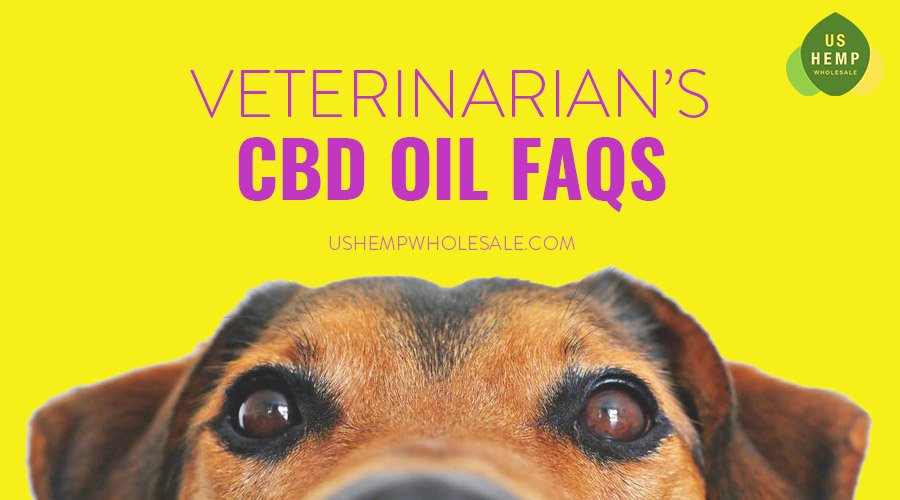With the increasing amount of research being conducted on cannabidiol (CBD) and its effect on the human body, many have considered the effects of cannabis on other animals, such as pets. Most vertebrates have an endocannabinoid system, the system in which cannabinoids such as CBD interact. This similarity between humans and other animals has peaked the interest of both pet owners and the scientific community.
From this interest has sparked a new demand: CBD for pets.
As a veterinarian, you may have noticed an influx of CBD dog treats and other CBD pet products entering the market. This may have prompted some questions of your own, including how to sell CBD in your industry.
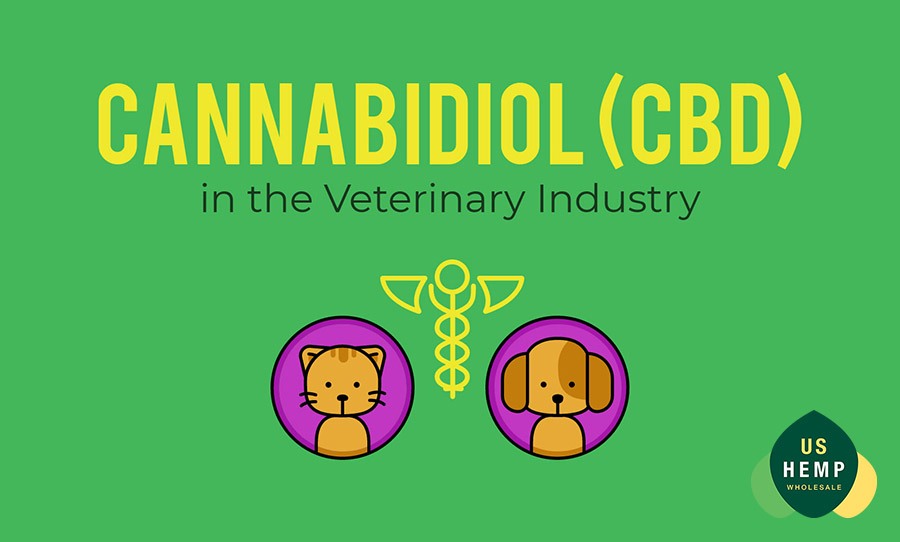
While they have not taken an official stance on the use of cannabis for pets, the American Veterinary Medical Association (AVMA) states, “Veterinarians making treatment decisions must use sound clinical judgment and current medical information, and must be in compliance with federal, state and local laws and regulations” (source).
The veterinarians we currently work with have reported an increase in questions about CBD products for pets to help treat a variety of symptoms. By combining your expertise with our knowledge of the CBD industry, you will be better able to cater to the rising demand for CBD pet products.
Legality of CBD
First, the legality of CBD should be addressed. Marijuana is a listed as a schedule I drug by the DEA and is illegal for veterinarians to prescribe. This causes confusion across industries because CBD is generally sourced from industrial hemp, which is a cousin plant of marijuana. Both are cannabis plants but differ in their chemical composition. With the passing of the 2018 Farm Bill, it’s unclear how this will affect veterinarians.
Industrial hemp is only considered legal if the THC levels fall below 0.3%. The best way to check CBD and THC levels of a product is to request the certificate of analysis (COA). Manufacturers should be transparent about their source of hemp oil not only to guarantee safety but to prove legality.
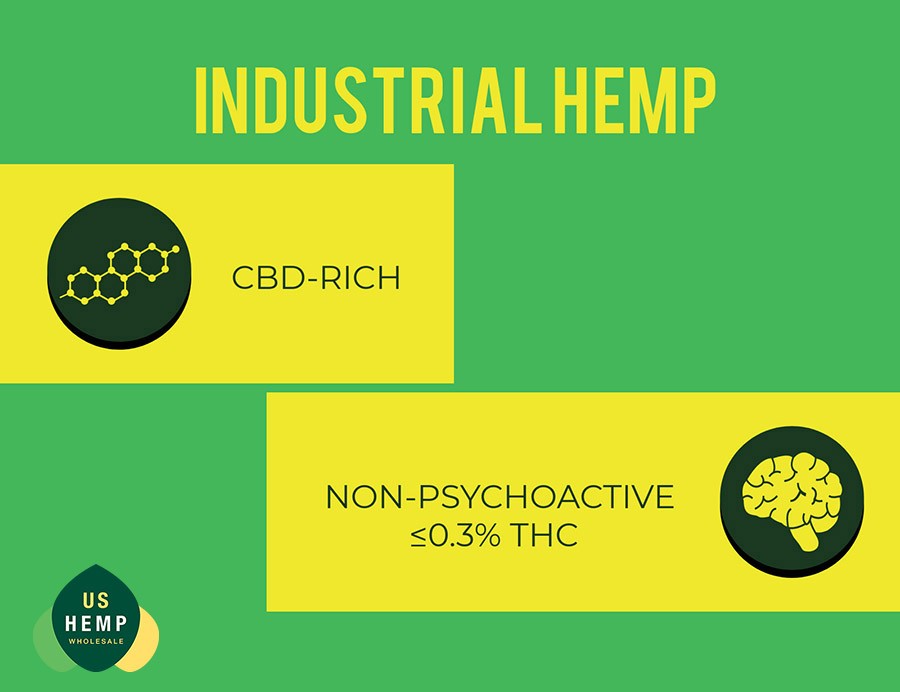
In short, if sourced properly from hemp, CBD oil is legal to sell throughout the United States.
Difference Between THC and CBD
As a reseller of CBD for pets, pet owners will be most curious about the difference between cannabidiol (CBD) and tetrahydrocannabinol (THC). While both are cannabinoids derived from the cannabis plant, the plant variety from which they are derived determines the levels in which these compounds are present.
Industrial hemp contains high levels of CBD and low levels of THC. Again, to be considered industrial hemp, the plant must contain less than 0.3% THC. Marijuana, on the other hand, is bred to have high levels of THC.
While similar in chemical structure, THC and CBD interact differently in the body.
THC is a psychoactive compound; CBD has no psychoactive or intoxicating effects. In fact, CBD prevents the action of THC at the cannabinoid 1 receptor and has been shown to reduce the psychoactive effects of THC.
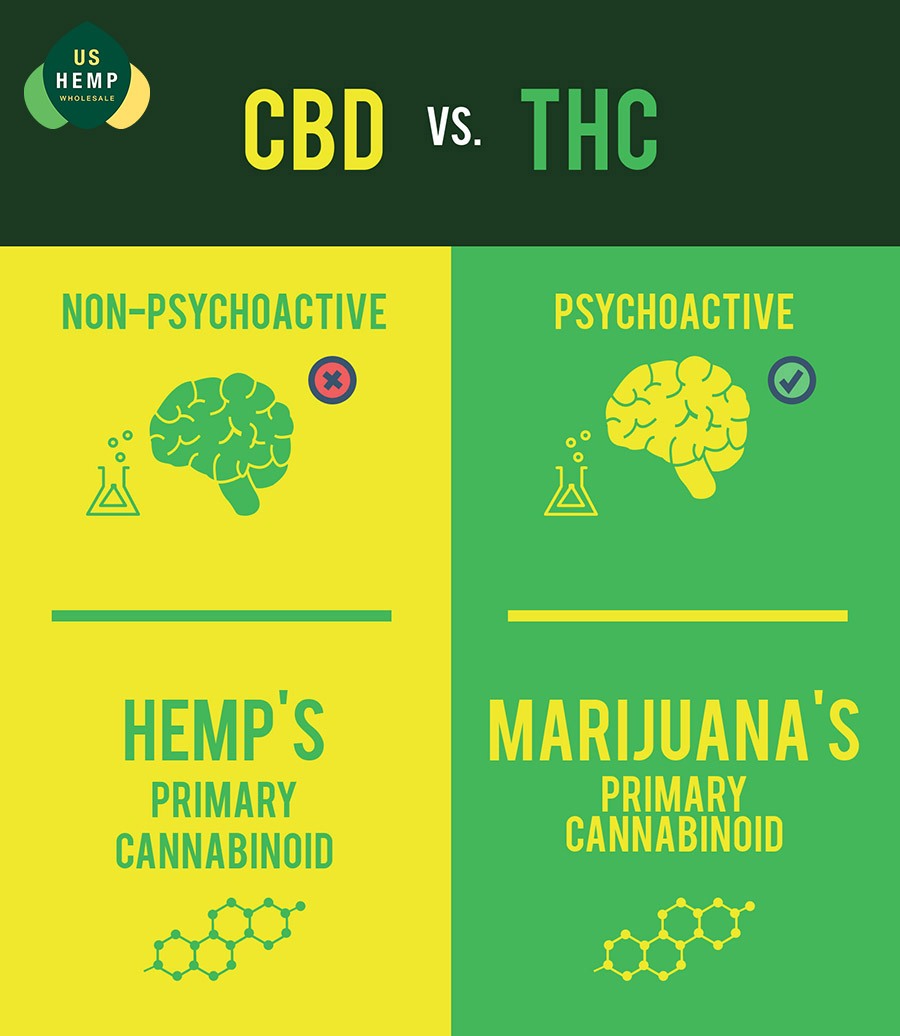
According to the American Society for the Prevention of Cruelty to Animals (ASPCA), marijuana is toxic to dogs, cats, and horses (source). Industrial hemp, which is low in THC, is not listed. Marijuana and industrial hemp do not contain the same levels of cannabinoids and therefore interact differently in the system. In addition, CBD derived from marijuana is distinct from CBD derived from industrial hemp.
Reliable Sourcing
We know the safety and well-being of the pets in your care is your number one priority.
When doing your research, a quality CBD product starts at the source. Hemp sourced from experienced farmers will produce a viable source of CBD. Be wary of hemp from Chinese sources, which are often responsible for high concentrations of heavy metals and pesticides. Many reputable brands source hemp oil from the United States and Europe, where farmers have had years of experience growing hemp.
Additionally, the extraction of hemp oil must be performed properly if it is to offer the full benefits of CBD. CO2 extraction preserves the purity of the oil and is the highest standard of extraction. In this method, carbon dioxide is put under high pressure and low temperatures. CO2 extraction is complicated but is the safest and cleanest method of extraction.
When choosing CBD for pets, be sure to analyze the manufacturer’s certificate of analysis (COA). This laboratory analysis checks for the profile of cannabinoids, terpenoids, microbials, heavy metals, and pesticides. A COA will confirm the consistency of CBD and the levels of THC. Verify that the manufacturer provides a COA and that the date of the COA is recent (around six months).
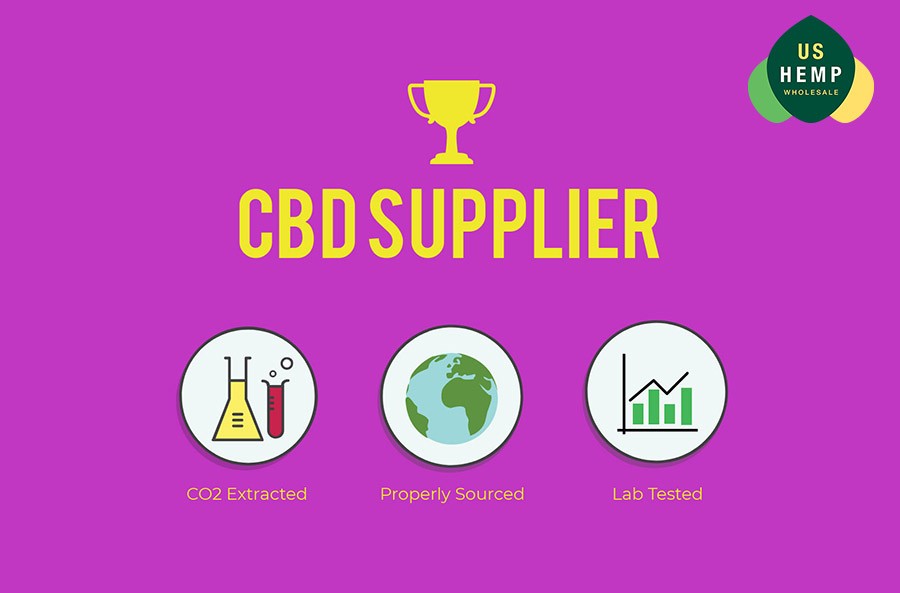
Clients may be using CBD for their pets without the input of a veterinarian. There are a number of untrustworthy CBD sources online that make inaccurate claims and manufacture without quality control. Providing your clients with a reputable source of CBD assures they are giving their pets a safe product.
Benefits of Hemp for Pets
There is an increasing amount of research being conducted on the benefits of CBD and the cannabis industry is enthusiastic about the direction in which research is going. However, there is no published research on the use of CBD in animals. Currently, Colorado State University is conducting a study on the use of CBD for the treatment of epilepsy and osteoarthritis in dogs, but the results are not yet available (source).

We encourage veterinarians to be transparent about the amount of research available and to emphasize that any results are anecdotal. Exercise caution in making promises that cannot be supported.
We are enthusiastic about advocating for more research in regards to pets and CBD. As the law becomes more accepting of CBD, the opportunity for institutions to conduct research will broaden. In the meantime, there have been many positive personal stories on the benefits of CBD in pets. For that reason, CBD is still a supplement to keep in mind for clients, especially those with holistic preferences.
Selling CBD in the Veterinary Industry
Veterinarians, manufacturers, and distributors are seeing an increasing demand for CBD pet products. With the many resources available, we encourage veterinary professionals to build their knowledge of the effect cannabis has on animals so they can present patients with reliable information. Presenting a balanced approach to this ever-changing industry will be of benefit to both you and your clients.
If you are interested in becoming a supplier of CBD pet products, fill out our partner form or call us at (844) 387-4367. If you are a veterinarian and are not interested in selling CBD pet products, but would like to learn more about the effects of CBD on pets, follow our blog or sign up for our newsletter to stay up to date.

